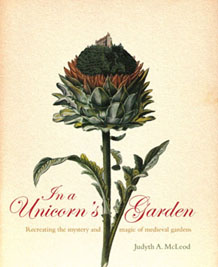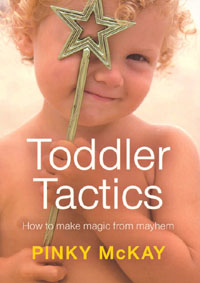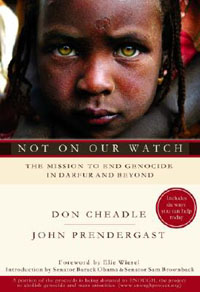Firstly, let me preface this review with the admission that I am not a gardener. I am guilty of both neglect and incompetence when it comes to caring for plant life. And yet I am reviewing a book about gardens because, in spite of my failings in this domain, I am fascinated by gardening and people who know how to care for gardens. Judyth A McLeod is one such person and she has shared some of her extensive knowledge in her latest book, In a Unicorn’s Garden: Recreating the mystery and magic of medieval gardens.

McLeod was inspired to turn her long-held notion of writing a book about medieval gardens into a reality after walking through the Labyrinthe des Merveilles at the Chateau de Merville in France. Its design is based on the secular labyrinths of the medieval period.
McLeod is also the author of Organic at Home and Lavender Sweet Lavender, amongst other titles on gardening and natural methods of healthcare. And she is co-owner of a nursery in the Blue Mountains (west of Sydney) called Honeysuckle Cottage, which specialises in plant antiques.
The opening chapter, of In a Unicorn’s Garden, ‘Unicorns and Other Magical Beasts’, was a complete eye opener for me. I was intrigued and delighted to learn that, during the medieval period, it was common for one to believe in unicorns, dragons and other fantastical creatures. Animal-plant hybrids such as the incredible, if ill-fated, Vegetable Lamb, were also thought to exist.
The Vegetable Lamb was a creature that grew from a seed and was attached to the ground by a stem. It survived by eating the grass it could reach and when it ran out of grass it died. And then there’s the Barnacle Goose, a strange fish-bird combo that it seems was contrived, before anyone knew about the migration of birds, to explain how geese suddenly appeared from over the seas. If you can’t explain it, imagine it was the medieval motto.
After the first chapter McLeod settles into discussing the various types of medieval gardens such as The Abbess’ Garden, The Knight’s Garden and The Cook’s Garden.
Each chapter contains a history of the garden, the reason for its being, a physical description including layout and the types of plants it would contain, who would use the garden and be responsible for it, and ends with a design and instructions for creating such a garden yourself. For instance a Mary Garden was created to honour the Virgin Mary and is intended as a place of prayer and reflection. Just some of the plants that would feature in a Mary garden, due to their association with the Virgin Mary, are carnations, forget-me-nots and the Madonna Lily.
It is fitting that in discussing beautiful design and things of a practical nature In a Unicorn’s Garden’s design and layout is both beautiful and practical. From the cover to the index it is clear that a designer’s hand has touched every page. The illustrations and photographs are thoughtfully incorporated with the text so as to accompany and enhance it. This book can be read from beginning to end or used as a reference via its comprehensive index. And mention must be made of the garden designs in each chapter that are exquisitely depicted in water colour.
McLeod has an enviable talent for capturing the wonder of the medieval period and its gardens and at the same time conveying so much factual information in an engaging and accessible way. In a Unicorn’s Garden will appeal to anyone with an interest in medieval history, mythology, botany, horticulture, landscape design or simply a desire to be fascinated.
Read Full Post »



 Buddhism For Mothers – A Calm Approach To Caring For Yourself And Your Children by Sarah Naphali
Buddhism For Mothers – A Calm Approach To Caring For Yourself And Your Children by Sarah Naphali


